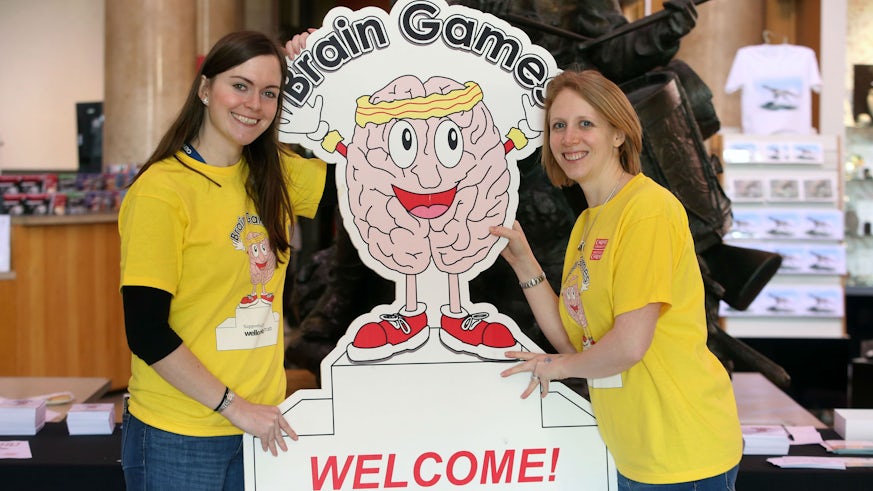Brain Games is back (Sunday 18th March, 11:00 – 16:00)
9 March 2018

From sensory illusions and inflatable brain domes to ghost hands and ‘DIY brain surgery’ – Brain Games 2018 showcases the power and mystery of our most vital organ.
All are welcome to come along and join the fun, taking on our challenges, and your friends, while learning about the wonders of your brain!
Whilst the games are aimed at 7-11 year olds (Key Stage 2), it’s a fun day out for the whole family and entry is free to all. It will mark the conclusion of the University’s involvement in British Science Week and Brain Awareness Week and give you a chance to meet many of Cardiff University’s neuroscientists.
Emma Lane, a senior lecturer and neuroscientist at Cardiff University, undertaking pioneering work on Parkinson’s disease, and chief organiser of the event, said, “Brain Games is designed to inspire a new generation of brain scientists and inform people about our research, bringing together neuroscience from across Cardiff University.”
The well-established Brain Games programme, brain child of Professor Derek Jones and Frank Sengpiel, is Cardiff University’s biggest engagement event, doubling the museum’s footfall on the day to nearly 4000 people, and this year promises to be the best yet. Of the activities, some old favourites will return, but there will also be new games and shows aimed at highlighting some amazing features of the brain.
Whilst the day is primarily intended to be a fun way of teaching children about the brain and some of the exciting research being undertaken at Cardiff University, it is also intended to inspire children, in particular young girls, to get into science. Part of Cardiff University’s strategy going forward is to engage with the local community, not only to raise awareness of the exceptional teaching and research, but also to bring forward the message that no matter what your background, gender or circumstance, higher education is for everybody.
This year’s activities include:
- Giant Genes – a new activity designed to help explain how diseases that affect the brain can be caused by damage to our genes. Have a go at our adaptation of a building game and see how stable you can make your genes!
- Flipped Shoot Out - an activity where people perform a number of activities whilst wearing prism goggles that shift their vision by about 30˚ to one side. The first activity involves talking to participants wearing goggles whilst carrying out a finger tapping test. We then explain how we are ‘remapping their brain’ to account for the 30˚ shift. When this is done the fun begins as the Nerf guns are brought out! First we ask the children to shoot at targets without the prism goggles, then again with the goggles on. They will find that they slowly get better as the brain adapts.
- Taste Twister – what you see it not always what you get in this game based on the idea our sense of taste can be confused if we give our eyes lots of other information. Does a red drink, surrounded by red berries actually taste of strawberries?
There are lots of other games and activities for the children to enjoy, including Cardiff University’s one and only Brain Dome, a unique bouncy inflatable shaped like a human brain. We’ll also have 3D-printed animal brains, science demonstrations, hands on activities give-aways and much more, all aimed to showcase the weird and wonderful nature of our fabulous brains.
You can follow Brain Games on Facebook or twitter @braingamesCU
Share this story
Developments in neuroscience and mental health research mean that we take another step closer to solving the mysteries lying behind psychiatric and neurodegenerative disorders.



